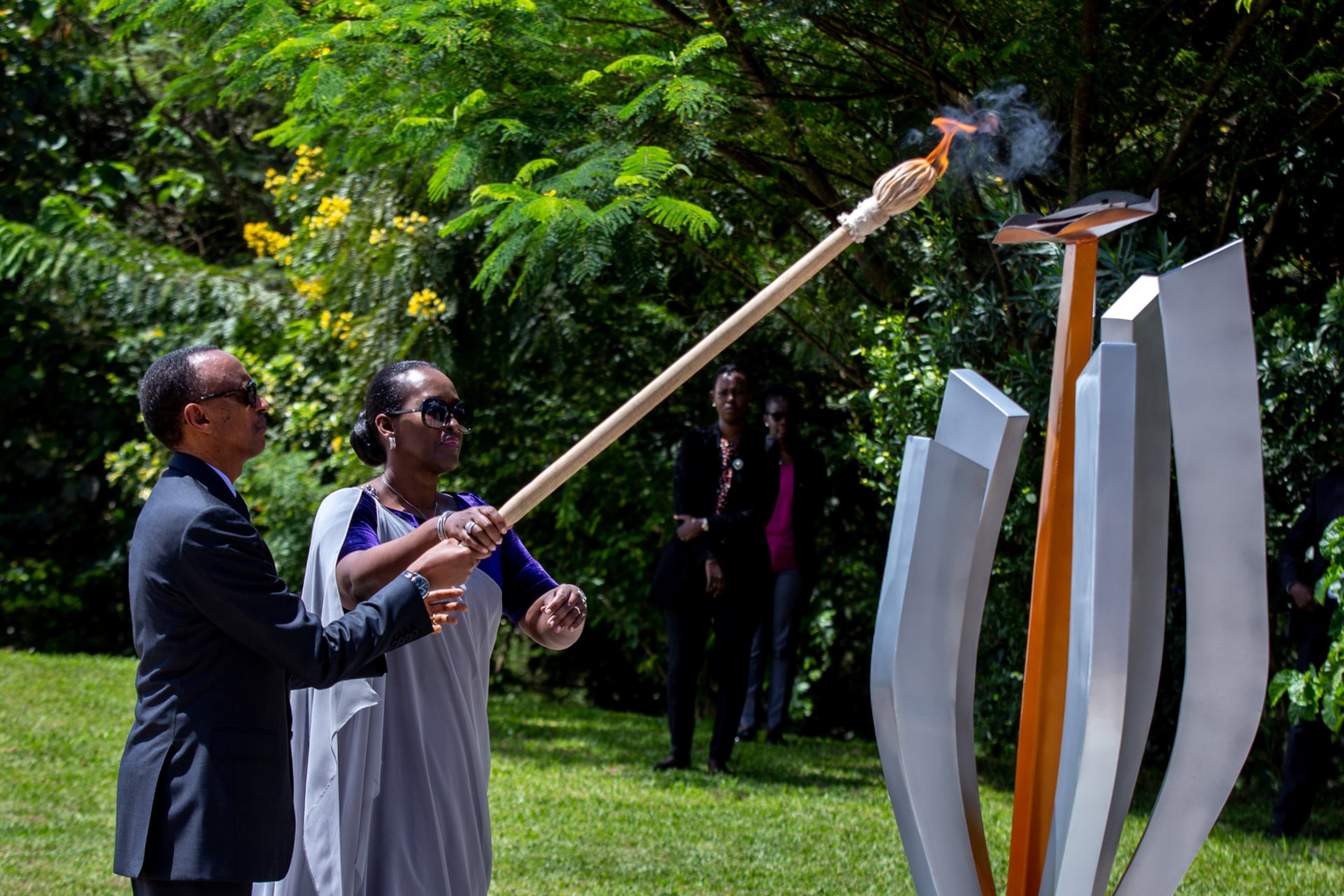Why Rwanda Needs to Prepare Now for Kagame’s Promised Departure in 2024

By experts and staff
- Published
By
- Guest Blogger for John Campbell
Neil Edwards is an intern for the Atlantic Council’s Africa Center in Washington, DC. He is a master’s candidate at the School of International Service at American University.
This April marks the twenty-six-year anniversary of the Rwandan genocide and twenty years since Paul Kagame took the reins as president. For much of that time, Kagame imposed limits on the political process, democratic debate, and opposition figures. He justified these limits by saying that the country was too fragile, the wounds too fresh, and the competitive aspects of democracy too divisive for a country emerging out of a genocide. Many Rwandans, and much of the world, accepted that logic, including the United States, which was likely constrained by its failure to act during the genocide and also its decision to block the United Nations from doing so. But when does that grace period end?
Although the wounds of the genocide still persist, Rwanda is young: two-thirds of the country are under the age of thirty. In other words, a vast majority of the nation was born after or were infants during the genocide. While most of this generation does not have memories of the atrocities and certainly, none were perpetrators, they still must endure the strict policies of the Kagame regime.
Rwanda’s institutions are staunchly loyal to President Kagame. Members of parliament—63 percent of whom are women, three times the world average—are necessarily loyal to the ruling Rwandan Patriotic Front party, rather than to the constituents who elected them. The judiciary is not independent and has aided the regime’s political imperative by filing spurious charges, jailing, and in some cases carrying out extrajudicial executions. The military, which patrols the country and is accused of unlawfully detaining and torturing people in military camps, often targets those with dissenting opinions. These institutions have enacted and helped enforce limitations on freedoms and expressions.
Fierce critics of the Kagame regime, many of whom were initially Kagame’s allies, have all faced spurious charges, extended jail time, and even death. In 2017, prior to the presidential election, Diane Rwigara, a female candidate, was arrested alongside her family for tax evasion and inciting an insurrection. She spent over a year in prison. Similarly, Victoire Ingabire Umuhoza, a female presidential candidate in the 2010 election, was arrested and served eight years of a fifteen-year sentence on charges of terrorism and threatening national security. These charges are also widely understood to have been ginned-up for political purposes. In February 2020, Kizito Mihigo, a popular gospel singer was found dead in his prison cell. Kigali police claim that he hanged himself, although critics believe he was murdered. Mihigo had released a music video in 2014 that challenged the official government narrative of the genocide, which led to his arrest.
The stories of Rwigara, Umuhoza, and Mihigo are merely the most high profile examples of the fact that the country is not healing; rather, there is increasing impatience with the constraints on democracy. Instead of seeing the Kagame administration’s oppressive approach to opposition as a mark of strength, young Rwandans may increasingly see this as a sign of political fragility. Kagame presents himself as an indispensable ally of the United States—crucial for the security of the Great Lakes. But what happens when Kagame steps down, as he promises to do in 2024, or at a later date? His departure will likely leave a gaping power vacuum.
Hence, institutions must be strengthened and reformed to prepare the country for his eventual departure. Kagame has not groomed a successor and Rwanda’s popular political elites have been systemically sidelined via exile, targeted assassinations, or jail. So, who will be the future leaders of Rwanda? It is time for inclusive institutional reforms to promote civil society and encourage the younger generation to voice their visions for the future. With support from the Rwandan government, this would result in the natural, non-threatening emergence of political parties and a new wave of candidates running for the office of the presidency. This would also engage and unite the country in selecting the next president—assisting Rwanda in its long-held goal of fostering social cohesion in the process. If these institutional reforms are not adopted, Rwanda may face the same fate of Zimbabwe, where, despite a 2017 military coup, the subsequent death of Robert Mugabe, and the transition of power to President Emmerson Mnangagwa, the institutional legacies of repression live on.
The United States and other friends of Rwanda should set a clear and unified policy that encourages the Rwandan government to adopt inclusive institutions and permit the growth of civil society in order to prepare it for life after Kagame. This would promote the enduring stability and security of Rwanda and the Great Lakes region.